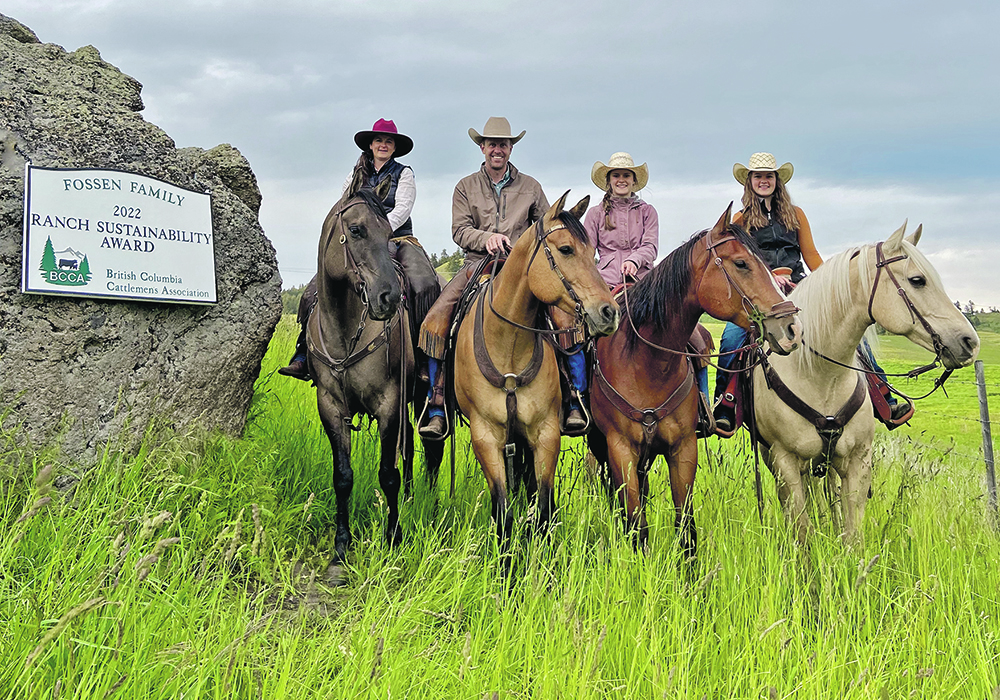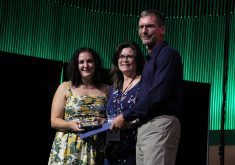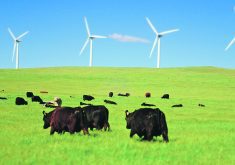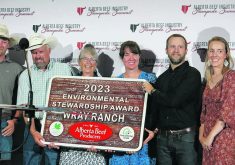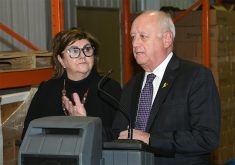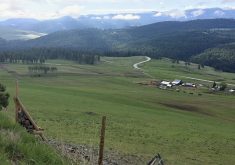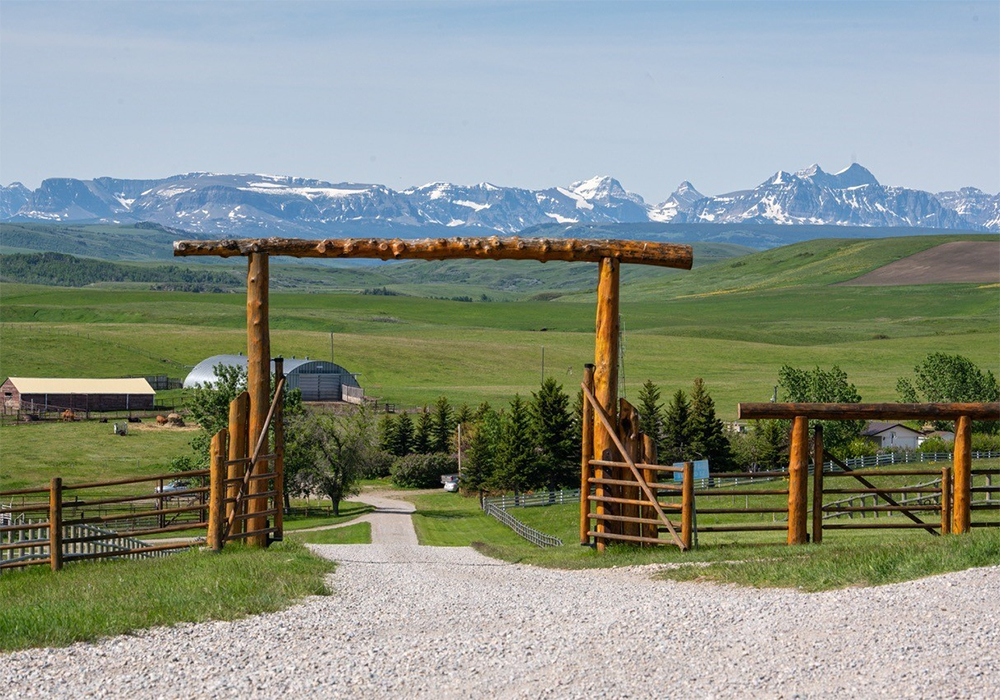Award presented to beef producers deemed to have consistently gone above industry standards in conservation practices
Bar 7 Ranch, located near Rock Creek, B.C., has won the national Environmental Stewardship Award for 2022 presented at the Canadian Beef Industry Conference held earlier this month in Penticton, B.C.
The ranch, owned by Erika and Doug Fossen, picked up the award presented to beef producers who consistently exceed industry standards in conservation practices.
Doug said the ranch is located in a particularly rugged area with slope grades running from 12 to 20 degrees.
“We have always fought with water,” he said.
Maintaining cover crops to prevent erosion during seasonal heavy rainfalls that can hit the predominately dry region of the province is one of the reasons the ranch has been able to succeed.
Read Also

VIDEO: Ag in Motion documentary launches second season
The second season of the the Western Producer’s documentary series about Ag in Motion launched Oct. 8.
“With our zero-till, that brought us closer to understanding how much moisture we can save,” said Doug.
The ability to keep moisture in the ground rather than having it run off also allows for irrigation, he added.
Bar 7 Ranch’s irrigation system was upgraded from a hand line to a centre pivot, which again saved more water.
“When we installed that pivot, instead of having hand lines and wheel lines, we were able to run the pump about three days out of a week instead of seven days and our production almost doubled,” said Doug.
Not only did the shift produce better yields, energy costs were saved while reducing labour.
The ranch has also been able to diversify its crops using no-till seeding, which has allowed it to move from oats and barley to adding peas, clover and rye into the rotation.
“The zero-till has really helped us learn how we have to add organic matter to our soil because it’s not just water or fertilizer we need to add but that layer of protective organic matter on top,” said Doug. “Zero-till has taught us how to manage that on cropland but also now moving that onto our grassland.”
The fertilizer that is used is administrated through the irrigation system as well as putting it down with the seed.
“We’re getting way better results. You can see it in the crop and yet we’re using less fertilizer,” said Doug.
Erika said their local ranching community is receptive to the stewardship practices being implemented on their ranch, either through asking questions about how they are operating or through promoting techniques as leaders in the 4-H community.
Environmental farm plans and the federal species at risk partnerships on agriculture lands have proven valuable in helping to absorb some of the costs associated with transitioning to new techniques, said Erika.
As well, programs offered by Verified Beef have also assisted.
“What those programs do is if you as a ranch want to try and improve, be more sustainable, make a better environmental impact, is give you that little bit of help to be able to carry on and finish the project,” said Erika. “To do the whole thing with 100 percent of the costs on yourself, it gets to the point you can’t afford it this year. When you’re getting 30, 50 or 70 percent help, it’s a game changer.”
While Erika said she’s thankful to be this year’s winner of the Environmental Stewardship Award, the regional finalists from across the country all have different challenges and all have been able to utilize resources in their communities to improve their lands.
Bar Ranch 7 is the third B.C. ranch in the last five years to win the award, which has been presented every year since 1996.




